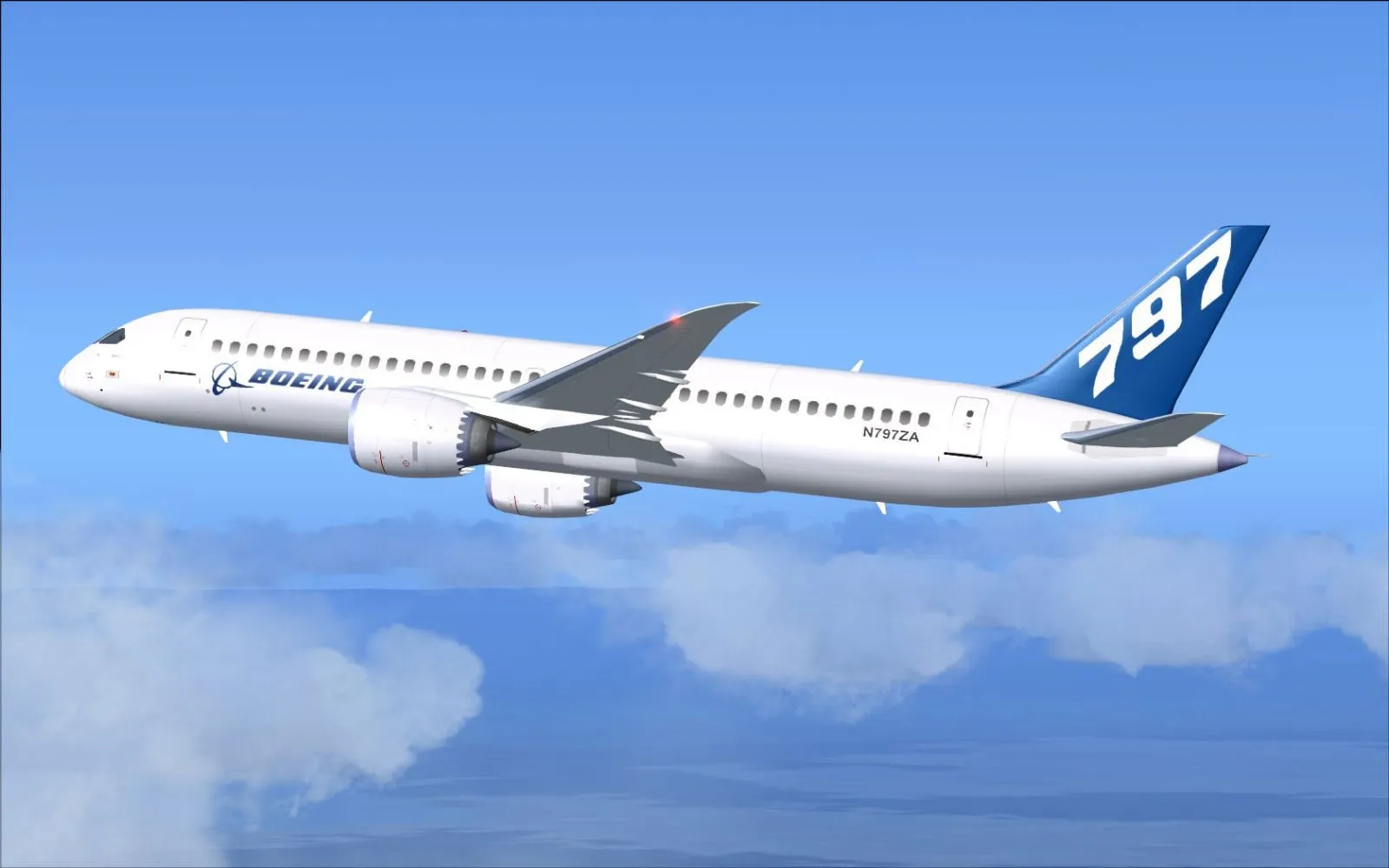
Boeing moving towards 797 launch decision
May 29, 2019

Boeing is increasingly focused on making a decision regarding the launch of its long-anticipated 797 model, aimed at filling the gap between the narrow-body and wide-body aircraft segments. The company is conducting extensive market research and engaging with airlines to understand their needs for a potential mid-range aircraft. With growing competition from rivals like Airbus and increasing demand for fuel-efficient, versatile planes, Boeing is under pressure to finalize its plans. The 797 is expected to incorporate advanced technologies and enhanced passenger comfort, reflecting the evolving preferences of airlines and travelers in an increasingly competitive aviation landscape.
Boeing's strategic decision-making regarding the anticipated launch of the "797" has garnered significant attention within the aviation industry. As the company moves closer to solidifying its plans, industry analysts and stakeholders are keenly observing the factors influencing this pivotal moment. The "Boeing 797" is expected to fill a gap in the market for a mid-sized, fuel-efficient aircraft, catering to airlines looking for versatility and cost-effectiveness. This article delves into the latest developments surrounding the "Boeing 797", examining market demands, technological advancements, and Boeing's competitive positioning.
Market Demand for the Boeing 797
One of the driving forces behind Boeing's decision to advance towards the "797" launch is the evolving market demand. With airlines increasingly focused on operational efficiency and sustainability, there's a growing need for aircraft that can serve routes between regional and long-haul flights. The "Boeing 797" aims to address this niche, offering capabilities that align with current trends in air travel.
According to recent studies, the demand for mid-range aircraft is expected to grow by approximately 30% over the next decade. This figure underscores the necessity for manufacturers like Boeing to innovate and introduce new models that meet the shifting preferences of airlines and passengers alike. The "Boeing 797" is projected to be a game-changer, featuring advanced aerodynamics and engine technology that promise lower operational costs and reduced environmental impact.
Technological Advancements in the Boeing 797
Technological innovation is at the heart of Boeing's strategy for the "797". The company is investing heavily in research and development to ensure that the new aircraft incorporates the latest advancements in aviation technology. Some of the key features expected in the "Boeing 797" include:
| Feature | Description |
|---|---|
| Composite Materials | Utilization of lightweight materials to enhance fuel efficiency. |
| Next-Generation Engines | Engines designed for improved performance and reduced emissions. |
| Advanced Avionics | Enhanced navigation systems for increased safety and efficiency. |
These technological advancements not only align with regulatory requirements for emissions but also meet consumer expectations for sustainable travel solutions. As airlines navigate the complexities of environmental compliance, the "Boeing 797" positions itself as a frontrunner in the market.
Boeing's Competitive Positioning
As Boeing approaches the decision to launch the "797", understanding the competitive landscape is crucial. Boeing faces stiff competition from other major players, particularly Airbus, which has been proactive in introducing new aircraft models that cater to similar market segments. The introduction of the Airbus A321XLR has intensified competition, pushing Boeing to expedite its development process for the "797".
Boeing's ability to differentiate the "797" through unique selling points will be vital. By focusing on operational flexibility, passenger comfort, and environmental sustainability, Boeing aims to capture the interest of airlines looking to modernize their fleets. This approach is expected to enhance Boeing's market share in the mid-sized aircraft segment.
Stakeholder Reactions and Industry Speculation
As speculations around the "Boeing 797" launch intensify, reactions from industry stakeholders have been mixed. Airlines are expressing optimism about the potential for the "797" to meet their needs, while investors are keenly watching Boeing's financial performance and strategic decisions. Analysts are particularly focused on the timeline for the launch, with many anticipating a formal announcement in the near future.
Recent industry conferences have provided a platform for Boeing executives to share insights into the company's vision for the "797". The feedback from airline representatives has been overwhelmingly positive, indicating a strong interest in the aircraft's anticipated features and capabilities. This interaction reinforces the importance of stakeholder engagement in shaping Boeing's final decision on the "797" launch.
Conclusion: The Future of the Boeing 797
As Boeing moves closer to a decision regarding the launch of the "797", the company is navigating a landscape filled with both challenges and opportunities. The aircraft's potential to fulfill a critical gap in the market, combined with cutting-edge technology, positions it as a significant contender in the aviation sector. With airlines increasingly prioritizing efficiency and sustainability, the "Boeing 797" could very well redefine air travel in the coming years.
In conclusion, the anticipation surrounding the "Boeing 797" reflects a broader trend within the aviation industry towards innovation and adaptability. Stakeholders are eagerly awaiting further developments as Boeing continues to assess the market's needs and finalize its plans for this promising new aircraft.
Related Articles

Explore Thailand: The Best Islands to Visit for Paradise, Adventure, and Relaxation

The Ultimate Guide to the Best Islands in Thailand for Your Next Getaway

Do babies need passports? How to get a passport for a newborn

How to get a U.S. passport fast: here’s how to expedite the process

What is Mobile Passport Control: 5 reasons why you should use it

SENTRI vs. Global Entry: A detailed guide

Do you need a passport to go to the Bahamas? Let’s find out

Do you need a passport to go to Mexico? A detailed guide

Do you need a passport to go to Canada? We got the answer

Do You Need a Passport for a Cruise: An Essential Travel Guide

Booster Seat Requirements: All the Rules to Follow in Your Rental Car

What Are the World’s Most Powerful Passports, and How Does Yours Rank?

How to Take a Passport Photo at Home: A Helpful Guide

You've got to have heart! Southwest's new livery

Your opinion: Should water be free on low cost carriers?

Young women bolder than guys as solo travellers
